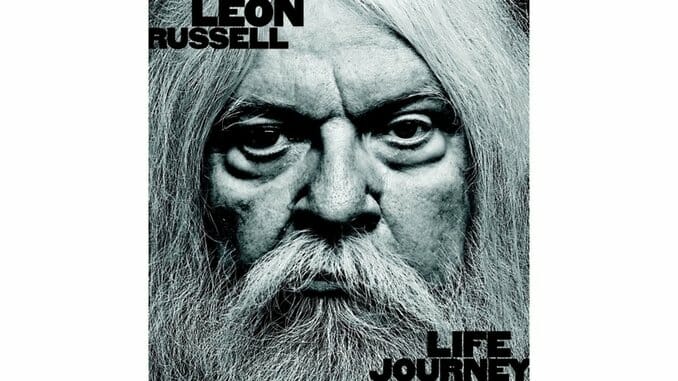
Leon Russell’s voice sounds like parched earth, cracked and its essence crawled out: raw, blistering, molten to the touch and savory in all the right places.
From the opening of Robert Johnson’s “Come On Into My Kitchen,” Russell’s authority is buttressed by a swagger that is as comfortable as it is saucy. Seventy-one years old, he’s recorded as part of Phil Spector’s house band, anchored George Harrison’s Concert for Bangladesh and the legendary Mad Dogs & Englishmen tour, in addition to founding Shelter Records and penning the seminal “A Song for You” and “Superstar.” Now the reclusive Tulsan finds new spark in various forms of classic American music.
He worked with producer Tommy LiPuma, and the pair enlisted classic jazz musicians, rock icons and studio stalwarts to bring new heat to Duke Ellington’s “I Got It Bad (& That Ain’t Good),” stride through John Davenport and Eddie Cooley’s “Fever” and even a loping rendering of “That Lucky Old Sun,” with the steel pining for what was and the swelling gospel vocals he vamps against on the end channeling pure righteousness.
There are surprises. Billy Joel’s “New York State of Mind” is a brassy tour de force, equal parts exhaustion and Sinatra in full rut. The slow saunter of “Georgia,” with its low horns and subtle cocktail percussion, offers an eroticism that is a yearning homage to a state of mind as much as the physical place.
As a survey course of the styles Russell captured over his years making music, Life Journey is comprehensive and expansive. But it also leans into the right now with his jumpin’ “Big Lips,” a swivel-hipped juker that finds him pounding a syncopated barrelhouse piano as he growls through an homage to—most likely—the lips most never see. Slightly ‘50s, the spark is the igniting element for most carnal frisson, and the white-haired rocker leans in hard.
“Down In Dixieland,” Russell’s other original, bubbles with gris-gris infectiousness, both employing the swampiness and sparkle of good Dixieland. Clarinets buzz and spin like a stripper on a pole, while Russell’s left hand pumps the piano’s bottom and his right tickles rolls of notes designed to move a band down the street. Russell’s ragged voice offers the sort of shout ’n’ combustion witness that makes secular pleasures almost sanctified.
Leon Russell has nothing to prove, so his will to rappel off musical cliffs and soar into boogie, big-band jazz and tavern immersion’s rarified air is that much more satisfying. Not have, but want—that desire ignites his piano playing and those vocals that tear the cover off these classics old and new.